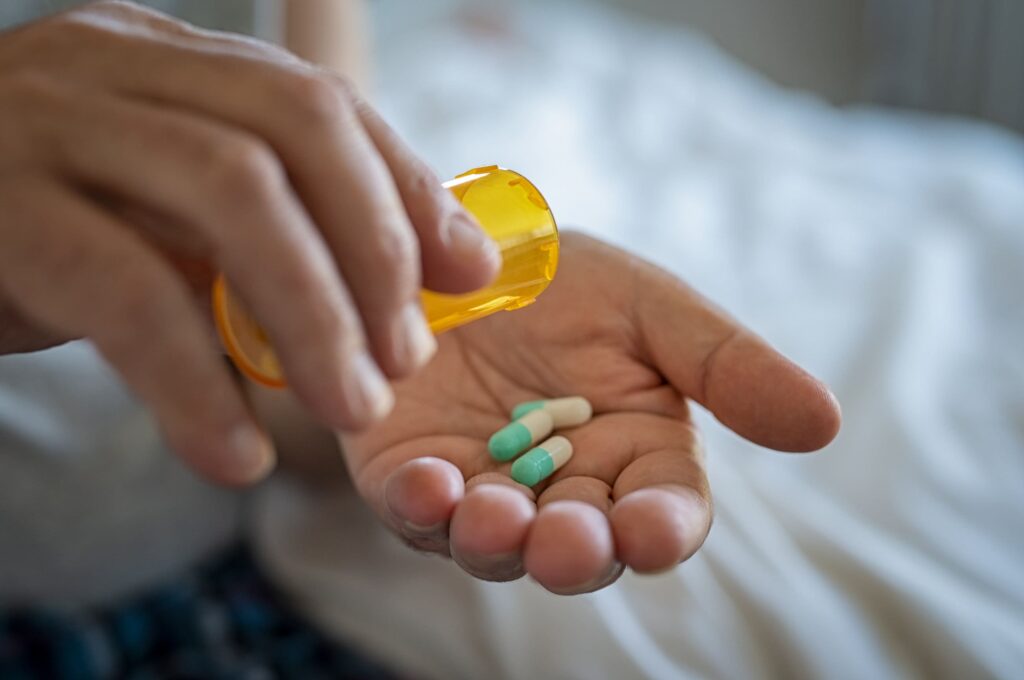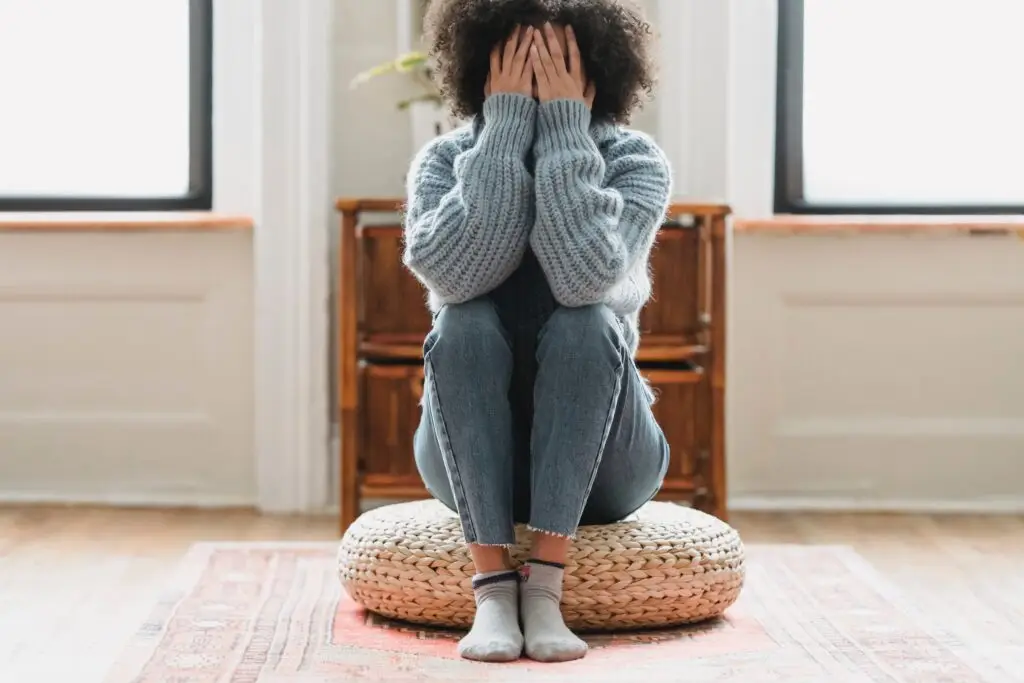Antidepressants for Depression and Their Impact
Antidepressants for depression refer to a group of psychoactive medications used to treat depression and other mood disorders.
Antidepressants are mainly helpful in treating depression, although they have also been used to treat anxiety, panic attacks, eating disorders, and obsessive-compulsive disorders, among other mood disorders. In the US, antidepressant usage is increasing. Psychiatrists now use them as their first option when treating patients with depression, frequently in addition to talk therapy.
Let’s take you on a ride through the realm of antidepressants, where we mention how antidepressants work, their impact, and their side effects.
How Do Antidepressants Work?
Antidepressants can reduce or eliminate the negative emotions and moods of people suffering from depression. Antidepressant drugs fall into three main categories: tricyclic antidepressants (TCAs: amitriptyline, dimethyl imipramine), selective serotonin reuptake inhibitors (SSRIs: sertraline, amitriptyline), and monoamine oxidase inhibitors (MAO: pargyline).
Researchers agree that antidepressants work with neurotransmitters. Neurotransmitters bind with neurons in the brain, enabling them to communicate. According to some studies, depression is caused by a lack of neurotransmitters in the brain, which decreases the brain’s electrochemical function.
Dopamine, serotonin, and norepinephrine are among the neurotransmitters that are influenced by antidepressants for depression.
- The brain uses serotonin to transmit messages regarding happiness and peace.
- People with low dopamine levels are generally depressed; dopamine influences motivation and actual perception.
- The way the body responds to stress is regulated by norepinephrine.
Antidepressants influence these neurotransmitter levels in the brain. Certain antidepressants for depression function by preventing neurotransmitters from being taken up and eventually reused by the body, a process known as recycling. Others hinder neurotransmitters from chemically attaching to specific nerve cells or alter the speed at which they break down. More neurotransmitter cells may become accessible for nerve cell communication in the brain due to all these events.
Who Can Prescribe Antidepressants?
Family doctors also often prescribe antidepressants for depression to patients who are experiencing short-term stressors like divorce, the death of a loved one, trauma, or just not feeling well. To treat patients who have been diagnosed with depression, psychiatrists usually recommend antidepressants initially, usually in combination with talk therapy. An estimated 20 million Americans use antidepressants, of which 1 million are children and teenagers.

How Long Does It Take for Antidepressants to Work?
Antidepressants are usually taken by patients for four to six months, frequently in addition to therapy. Nonetheless, physicians and patients may choose, in some instances, to take antidepressants for extended periods.
Are Antidepressants Overprescribed?
Patients who experience “sadness” are frequently prescribed antidepressants by family doctors and other non-psychiatrists with little guidance, monitoring, or counseling. Because they have less training in mental health concerns than psychiatrists, these doctors might be combining typical feelings of grief driven due to life circumstances with severe depression.
The number of people taking antidepressants for depression increased considerably in the 1980s and 1990s when SSRI antidepressants were introduced. Antidepressants are also prescribed for other problems or for simply feeling anxious or sad.
By 2005, according to a study by the Centers for Disease Control, antidepressants for depression were the most prescribed class of medication in the United States. Some antidepressants, which may be lifesaving medication for seriously depressed people, are being overprescribed by doctors for people who do not need them or may be harmed by them.
There are several factors believed to be behind the trend of widespread antidepressant use. Among them are the decreasing social stigma of depression, the use of antidepressants for mood disorders besides depression, the popularity of prescribing antidepressants among family doctors and general practitioners, the economic incentives of America’s health care system, and the marketing of antidepressants conducted by pharmaceutical companies
Benefits of getting off Antidepressants
Antidepressant-using patients have reported experiencing withdrawal symptoms that range from feeling dizzy, trembling, and diarrhea to suicidal thoughts. Widespread prescription of antidepressants suggests that any grieving or sadness is a medical problem to be treated with a drug rather than a life problem to be resolved and worked through by the individual.

Antidepressants over the Counter
You can use a few over-the-counter (OTC) antidepressants and herbal supplements. These may help in the relief of mild depression symptoms because they have mild antidepressant properties.
It could be worthwhile to try over-the-counter antidepressants if you have mild to moderate depression but no suicidal thoughts or inclinations. These include dietary supplements like omega-3 fatty acids or SAM-e and herbal treatments like Saint John’s wort and ginkgo biloba. Plus, do not forget to include healthy foods to eat while planning for an improved version of yourself against depression.
Antidepressants and Weed
There are various alternatives to antidepressants for depression for people who do not want to take antidepressants or patients who have been taking them and want to stop. Plant weeds like Saint-John’s-wort and ginkgo biloba are very effective for depression. These are safe and natural alternatives for the treatment of depression
with fewer side effects than drug antidepressants. But supplements and herbal remedies are not under as strict scrutiny by the FDA as antidepressants and do not have to pass the same test hurdles to be sold.
In addition to these medicines, people also prefer traditional talk therapy, electrical stimulation of the brain, and various alternative treatments such as hypnosis and acupuncture for the treatment of depression.
Alcohol and Antidepressants
Combining alcohol and antidepressants has significant adverse effects. Both affect the central nervous system, and their combination can increase the side effects. Alcohol may worsen the
Depression has side effects like drowsiness, dizziness, and impaired coordination. Furthermore, alcohol might reduce the efficiency of antidepressant medicine, making it less efficient in treating the symptoms of anxiety or depression. When antidepressants such as monoamine oxidase inhibitors (MAOIs) are combined with alcohol consumption, serious side effects, including severe blood pressure rises, are possible.
Antidepressants Side Effects
All antidepressants for depression sold in the United States have gone through a battery of clinical tests and other studies to gain FDA approval. There are some side effects of Antidepressants for depression mentioned below:
Antidepressants MAO Inhibitors Side Effect
Adverse symptoms related to sex, dry mouth, agitation, and weight fluctuations. They may also diminish the body’s supply of tyramine, a molecule that controls blood pressure, which can result in a person’s blood pressure rising quickly. Heart attacks, strokes, and other severe consequences could result from this as well.
A patient on these antidepressants is prohibited from eating various foods, such as aged meat, coffee, chocolate, red wine, and certain cheeses. Because of these side effects and complications, doctors and psychiatrists in the United States prescribed MAO inhibitors when other antidepressants have been tried and have failed to work.
Tricyclic Antidepressants Side Effects
Tricyclic antidepressants have a wide range of generally unpleasant side effects. These include agitated and nervous sensations, trouble focusing, dry mouth and eyes, constipation, difficulty peeing, nausea, and vertigo. Certain medical disorders like heart disease or an enlarged prostate may get worse as a result of them.
SSRIs Antidepressant Side Effects
Compared to MAOIs and other SSRIs, SSRIs are thought to have fewer and milder side effects. Some of the symptoms of the adverse effects include headache, sweating, agitation and anxiety, hyponatremia, gastrointestinal (GI) problems (diarrhea, vomiting, and nausea), weakness and exhaustion, changes in weight, and sleep problems (insomnia and drowsiness).
What happens when someone overdoses on antidepressants?
Cardiac arrhythmias from SSRI overdose are rare. Because all antidepressants have the potential to reduce the seizure threshold, seizures are a possibility. Serotonin syndrome may result from the use of SSRIs, particularly when combined with MAOIs or other strongly serotonergic medications.
Tricyclic antidepressant overdoses can be fatal. In the US, TCA overdoses are the most common cause of overdose fatalities. The physician or psychiatrist must be cautious in monitoring doses and managing side effects when prescribing tricyclics.
Can You Take Antidepressants While Pregnant?
Antidepressant use during pregnancy has increased in recent years. Roughly 2 percent of expectant mothers in the Netherlands are given antidepressants.
It is not permitted to use antidepressants when pregnant. In general, all unnecessary medications should be avoided when expecting. Women use drugs less often after they find out they are pregnant. Pharmacotherapy is used in circumstances that present a severe hazard to health.
A study by the University Medical Center (UMC) Utrecht, Utrecht, The Netherlands’ Department of Clinical Pharmacy, Clinical Chemistry, and Laboratory Medicine claims that antidepressant use was detected in 2% of all pregnant women in the study group during the first trimester. By the second and third trimesters, the percentage had decreased to 1.8% of all pregnancies.

Safest Antidepressants in Pregnancy
Physicians prescribe antidepressants during pregnancy out of concern for the harm that untreated stress and depression can inflict. Both traditional tricyclic antidepressants (TCAs) and selective serotonin reuptake inhibitors (SSRIs), such as sertraline (Zoloft) and fluoxetine (Prozac), were recommended by doctors.
Given the possibility that an untreated illness could also affect the unborn child, it is challenging to strike a balance between the medication’s potential advantages for the mother and its mostly unknown risks for the child. The hazards of both sickness and treatment must be known to assess if the benefits outweigh the dangers.
Long-Term Side Effects of Ketamine for Depression
Ketamine is an antidepressant used for the treatment of depression. Long-term use of ketamine causes potential risks.
Ketamine use long-term has several adverse effects, including memory loss and thinking problems (difficulty in remembering things, paying attention, and also affecting decision-making), mood swings, and effects urinary and digestive systems.
The most critical side effect of using ketamine for an extended period is the risk of addiction. When a person uses ketamine for an extended period, the body becomes tolerant to it. This means that the patient needs to take a higher dose to get similar results, which may cause the condition to worsen.
What happens if you miss a day of antidepressants?
It’s okay if you forget to take a single dose. It has some mild effects, like disrupting the effectiveness of antidepressants in your body. This could cause the return of some symptoms and make the condition worse. Try taking the missing dose as soon as you remember to prevent this, but avoid taking two doses simultaneously.
How to Get Antidepressants?
A patient must analyze himself for depression symptoms. If you have depression symptoms, consult with a doctor. Moreover, if you do not know how to get antidepressants, follow the below steps:
- Make an appointment with a psychiatrist
- Discuss your symptoms with your doctor.
- In-depth examination: Your Doctor will discuss your symptoms and medical history and perform psychological assessments.
- Prescription: Your doctor will examine your condition and will prescribe a suitable antidepressant for you.
- Regular check-ups: Do not miss appointments for speedy and effective treatment.
FAQs
After feeling better, is it possible for you to quit taking antidepressants?
Stopping antidepressant medication suddenly is not recommended. To prevent signs of withdrawal and guarantee a seamless transition, discontinuation should be carried out under the supervision of a healthcare provider.
Are antidepressants safe for kids and teens to take?
Children and teenagers can receive antidepressant prescriptions, although this is typically done under strict supervision and specific conditions. A pediatrician or child psychiatrist should be consulted to assess the possible advantages and disadvantages thoroughly.
Can I take antidepressants and still do everyday things like driving?
Most persons who take antidepressants are nevertheless able to carry out their everyday activities. However, some people may have adverse effects, including sleepiness or dizziness, so it’s vital to exercise caution, particularly while taking a new medicine.
Conclusion
To sum up, antidepressants for depression are essential for reducing depressive symptoms because they alter neurotransmitters such as serotonin, dopamine, and norepinephrine. These drugs affect neural networks and promote a more stable mood in addition to chemical abnormalities.
Antidepressants are essential in the complete treatment of depression, even though individual responses may differ. This is because antidepressants are generally effective. It is noteworthy that seeking advice from a healthcare expert is necessary for customized and efficient treatment.




